August 2023
Panorama: A Magazine of the European Forum
Interviews with and articles by Heather Grabbe | Christian Vanizette | Rosanna Fanni | Hermann Hauser | Soli Kiani | Yana Barinova | and others
Alpbach
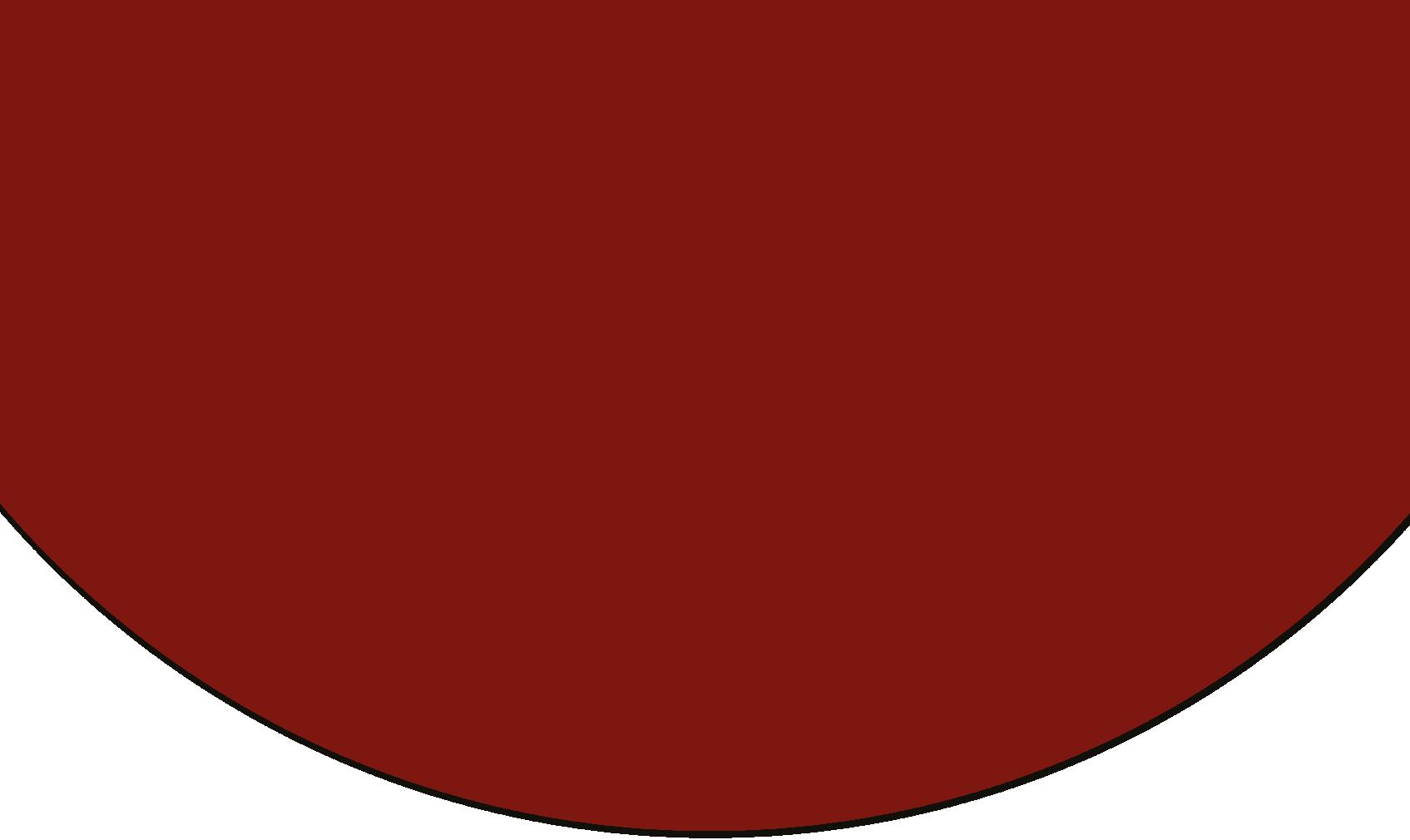
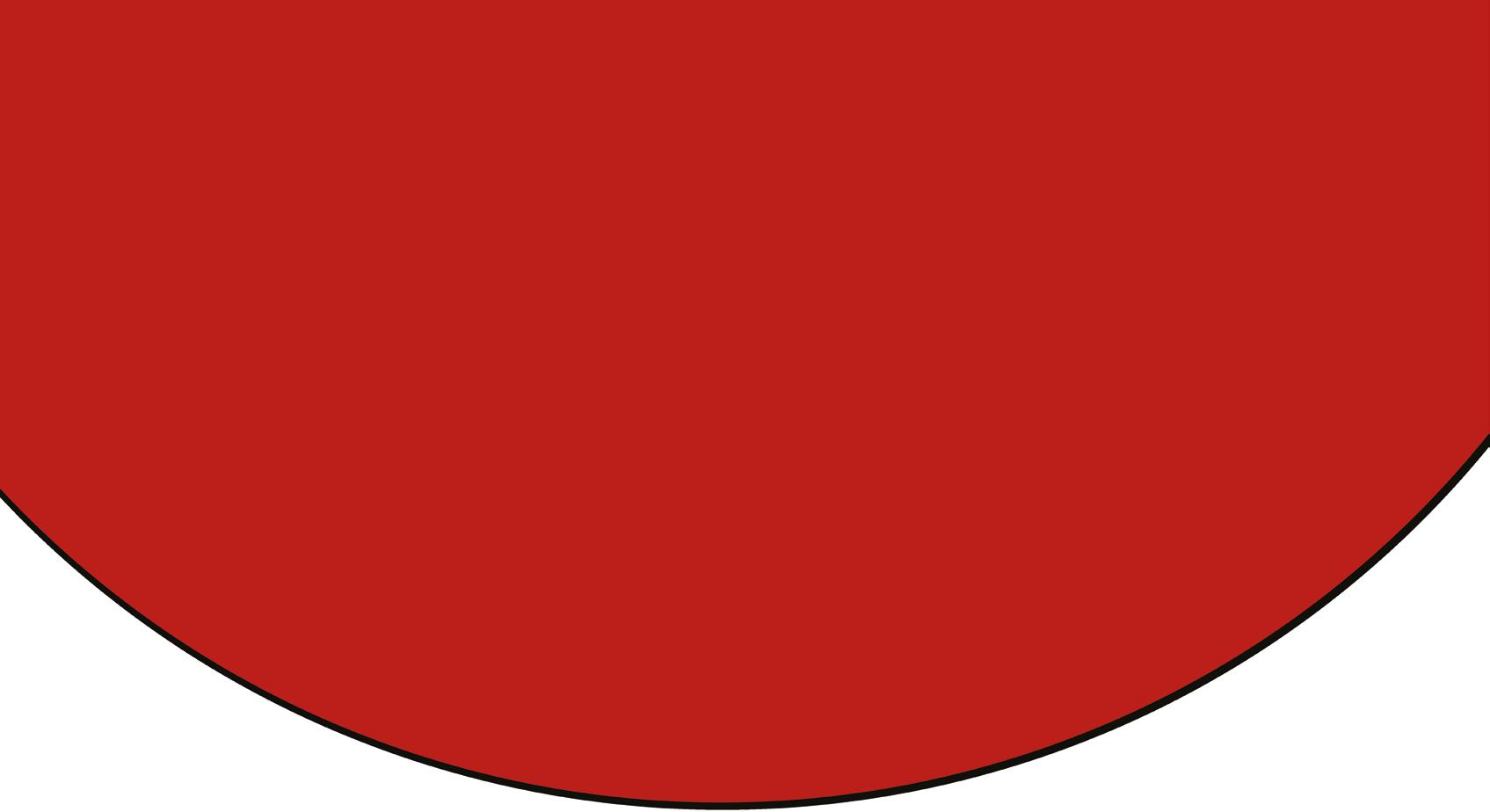
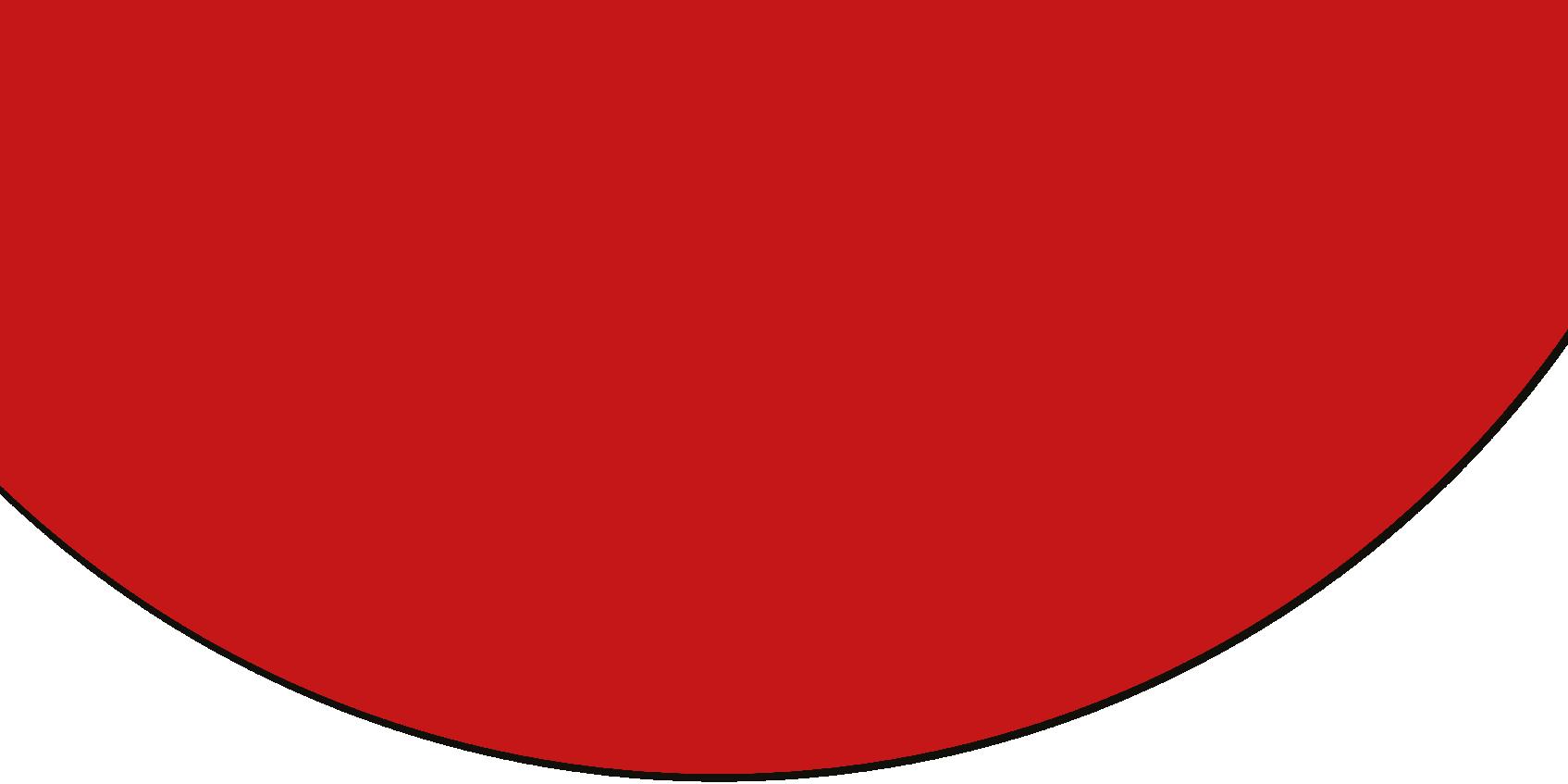
 Andreas Treichl EFA President
Andreas Treichl EFA President
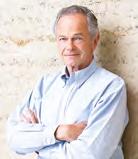
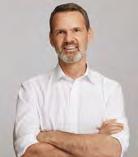
365 days, a timeframe in which the European Forum Alpbach is dedicated to strengthening Europe. How do we achieve this? By providing a platform to generate ideas and spark action. By calling for opinions and ideas that European key actors will discuss with the next generation. By having the determination and the courage to speak out.
In this issue of Panorama you will find a preview of what is on Europe’s and our minds this year. Topics that we look forward to discuss with you at this year’s event in Alpbach. What do we wish for?
To be more bold together!
Feri Thierry EFA Secretary General
4
CLIMATE AND DEMOCRACY
10 Considering the Politics of Climate Action Interview with Heather Grabbe and Christian Vanizette
14 From Ambition to Transition
Expert Opinion by Brigitte Bach
15 ChatGPT and Me: How we imagine technology says a lot about us
Expert Opinion by Barbara Prainsack
16 Climate Crisis: A battle to be fought in Brazil
Forum Alpbach Network (FAN) Voice by Jadran
Vecchiet
18 Reminder: Democracy is for everyone
Forum Alpbach Network (FAN) Voice by Christopher
Rindhauser
FINANCE AND SECURITY
22 Europe’s Struggle for Technological
Sovereignty Interview with Rosana Fanni and Hermann Hauser
26 Europe’s Economic Lessons from Russia’s War against Ukraine
Expert Opinion by Sergei Guriev
27 The New Geopolitics of Europe
Expert Opinion by Sven Biscop
28 Europe must act now to remain competitive
Forum Alpbach Network (FAN) Voice by Tetiana Gorokhova
32 The EU must readdress its current cultural policies by Jan Farfal
ARTS & CULTURE
38 Art can reflect on taboo topics - topics that politicans and diplomats aren’t ready to touch yet.
EFA guest curator Yana Barinova visits artist Soli Kiani
42 Elena Subach, Chairs
43 Natalia Domínguez Rangel, bleeding blue
44 Deborah Sengl, At(tent)Ion
45 Rojin Sharafi
Impressum
Publisher European Forum Alpbach, Non-Profit Association
Franz-Josefs-Kai 13/10, 1010 Vienna Tel.: +43 1 718 17 11, forum@alpbach.org
Concept Jung von Matt, Das Studio
Layout Lucy Giller, Little Gem Studio
Print Production Lindenau Productions GmbH
Editor EFA Team
Image Credits
MarkusTordik (3), Brigitte Bach (10), Barbara Prainsack (11), Heather Grabbe (12), Christian Vanizette (12), Jadran Vecchiet (17), Christopher Rindhauser (19), Sergei Guriev (22), Sven Biscop (23), Rosanna Fanni (24), Hermann Hauser (24), Tetiana Gorokhova (30), Jan Farfal (34), Elena Subach (42), Elisabeth Mandl (3, 39 – 41), Simone Veres (43), eSel (44), Hessam Samavatian (45)
5
INTRODUCTION INTRODUCTION INTRODUCTION INTRODUCTION INTRODUCTION INTRODUCTION INTRODUCTION INTRODUCTION INTRODUCTION INTRODUCTION INTRODUCTION INTRODUCTION INTRODUCTION
A bold Europe is not an option, it is a necessity!
Bold Europe is the European Forum Alpbach’s general theme in 2023. It continues and enhances the vision of a New Europe that had been chosen for EFA22. With the multiple crises our continent is still facing, a Bold Europe becomes more than necessary:
For too long, European prosperity has been based on cheap Russian energy, the huge Chinese market and American security guarantees. In 2023, Europe must accept this new reality and take a bold leap. It must urgently reduce its dependencies while remaining open to the world. Europe needs to massively build renewable energy systems, diversify away from dominating suppliers and vulnerable legacy industries, and take its security into its own hands. More than that: Europe also needs to become bolder in shaping the world. It must use the current window of opportunity to accelerate the green transition and strengthen its global leadership in the fight against climate change. Europe’s former economic powerhouses must bring their economies back on track and regain their competitiveness by investing more in technology and innovation. The EU must become more effective in using the size of its single market to set global standards following its interests and values. Defending our democratic values against authoritarian influences also requires boldness. We need to master this complex world by questioning assumptions, running experiments and taking risks. Bold means having a clear plan together. The willingness to take risks together. The prepar-
edness to act fast and strong together. A bold Europe is not an option, it is a necessity.
Within this year’s annual theme framework, the EFA23 once again focuses the four main challenges of our time: Climate, Security, Democracy and the Rule of Law, and Finance and Economy. In detail, these topics will be addressed through the following thematic tracks and questions:
Rallying for Climate Action: How do we design climate action to bring about a truly sustainable and socially just transformation? What are the structures, innovations, incentives, models and mindsets it needs to enable this action? What is everyone’s role in climate action?
Fighting for Europe’s Economic Sovereignty: How to secure the financial future of Europe’s young generations? How to finance Europe’s bid to win the global race for technology and innovation? How to manage future economic and financial relations with Ukraine and with Russia?
Securing Europe in a Multipolar World: How can the EU better translate its strengths into political clout and contribute to peace? What should a future European security architecture look like? How is technology used in the global competition and how might it contribute to peace-building?
Reinforcing Democracy in Europe: How can we safeguard and enhance democratic resilience? How can we effectively include citizens in democratic processes? How can we improve democratic leadership?
7 EuropEan Forum alpbach panorama
CLIMATE CLIMATE CLIMATE CLIMATE CLIMATE CLIMATE CLIMATE CLIMATE CLIMATE
AND DEMOCRACY
The 1.5° target is as ambitious as it is inevitable. Using technology to limit global warming is an essential element of the solution and we need to negotiate its role in society. Read EFA voices on current climate action’s democratic legitimacy, its north-south implications and bold ideas for more political participation.

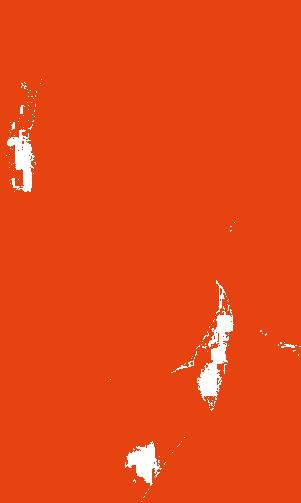


10 EUropEAN ForUm AlpbAch pANorAmA
Considering the Politics of Climate Action
AP What are in your opinion the particularities when looking at climate action and its embedment in democratic processes?
HG For me, one of the huge questions is how to sustain democratic consent for a whole system change. For one, I think that there’s a timing problem between democratic processes and climate action, with the fact that electoral cycles don’t match the longer timeframe of the climate transition. And same with corporations, where investors are expecting year on year or even quarter on quarter growth and returns.
And the other big issue is about the territorial boundedness. Most representative democracies on the planet rely on a parliamentary system of some kind, where people get to elect their representatives every four or five years. But in fact, climate is not just about the interests of one particular constituency and decisions may have enormous implications for people elsewhere in the world. There was a very interesting ruling from the German Constitutional Court on the climate law, which is significant in showing this temporal and geographical dimension of climate justice, which we don’t really at the moment have any way of integrating into our policymaking cycle and our democratic decision making. You end up with trade-offs
Heather Grabbe is currently a Europe’s Future Fellow at the Institut für die Wissenschaften vom Menschen (IWm) Vienna, as well as Senior Advisor at the Open Society Foundations. short
Christian Vanizette is co-founder of makesense, a community that empowers individuals and entrepreneurs to drive social innovation. Most recently he created the effective climate action app regroop.
AP Alpbach Panorama HG Heather Grabbe CV Christian Vanizette
»There’s a timing problem between democratic processes and climate action, because electoral cycles don’t match the longer timeframe of the climate transition.«
—HEATHER GRABBE
To efficiently achieve the climate goals, democratic systems are needed: We asked Heather Grabbe and Christian Vanizette what makes climate activism effective and how they assess the European Green Deal in terms of its democratic legitimacy.
short bio
bio
11 INtErvIEW
The transition towards a net-zero future requires new economic thinking and strategic climate finance.
in terms of climate justice, trade-offs between people now and people later, us and our grandchildren, and great grandchildren, and trade-offs between the interests of people in different parts of the world. So how do you get democratic legitimacy when our democratic systems were designed for a very different set of circumstances and a very different nature of challenges?
CV This ruling is the new power case. It also shows that one problem with the shrinking space of democracies around the world is that it makes climate activism much harder. It’s really easy to put pressure on, say, banks in Western democracies not to finance new oil and gas projects, but with a Chinese bank or when it comes to actors in less democratic states, you have less ways to stop it.
So, what we’re doing with »regroop« is giving people a tool to fast-track climate campaigns every single day. These campaigns work on stopping carbon bombs (= proposed or existing fossil fuel extraction projects) and on fast-tracking policies for renewable energy.
AP Regarding the European Green Deal, how would you judge it in terms of its democratic legitimacy?
The European Green Deal is a first step on the way to climate action: Humanity can seize unprecedented opportunities for systemic change, social transformation, and technological innovation.
HG Well, actually, the European Green Deal has a very high degree of democratic legitimacy, because both the overall objectives, the European climate law, and also the individual measures have had to go through a complex system of multi-level governance with many democratic approval points along the way. But the flaw with this system is that everything has to be agreed on by everybody. There are compromises. For example, I would be very critical of the inclusion in the taxonomy regulation of the nuclear industry and the gas industry as being green industries. I would also be very critical of the way that certain parts of the legislation have got watered down in the European Parliament. I think the big question about the European Green Deal is about whether member states will implement it adequately.
The sense of inevitability is really key. If governments, if individual citizens have the sense that, hey, we’ve got to make these changes, otherwise,
»It’s easy to pressure Western democracies not to finance new oil and gas projects, but you have less ways to do so in less democratic states.«
—CHRISTIAN VANIZETTE
12 EuropEan Forum alpbach panorama
we’re not going to have a habitable planet for us and for our children or grandchildren, then this broad policy framework of the EU starts to become real. And that’s where it needs to move now, because otherwise the implementation won’t happen. It depends on a huge range of people in society to make that happen. And this is where I think climate activists are extremely important.
We need to mobilise global alliances to make European democracies more resilient and to safeguard their democratic values.
Societies must respond to polarisation, authoritarianism and citizens’ loss of trust in representative democracy.
Make underrepresented voices heard: To further strengthen democracy, our continent has to empower all parts of society.
I also think that cities are a really interesting part of the climate transition and a vital part of the European Green Deal, because it’s in cities where most of the emissions happen. A third of emissions come from agriculture, but an awful lot of emissions come from transport and from buildings in cities. And cities are also where experimentation can take place, where targets of the European Green Deal can be tried out. City level examples are a great way of inspiring other cities: The vision becomes concrete, it shows that the European Green Deal isn’t just dry legislation happening in Brussels, but stuff that could actually improve your daily life.
AP In terms of climate activism, what are elements that make it particularly effective?
CV So, the cool thing about climate activism is that with a little bit of money, you can have huge impact. For example, finding lawyers and working with activists to win a case, it’s 10s of 1000s of euros, and you have a great return. When you have entrepreneurs and activists working hand in hand, it’s actually amazing because you have entrepreneurs showing that the solutions exist and that they create jobs, and you have activists working to promote those solutions instead of old energy solutions that got us in this problem in the first place. What we’re doing right now in Paris, is that we have this new 7,000 square meter space for climate activism. It is entrepreneurship, a climate incubator and an activist incubator working hand in hand in the same space. And I think this will be really useful in holding France accountable to put in place measures to respect what was agreed at the European level. So, this is some of the tools we’re going to use.
»The sense of inevitability is key: If governments and individual citizens have the sense they‘ve got to make changes, the policy framework becomes real.
«
—HEATHER GRABBE
efa 2023
13 INtervIew
Heather Grabbe will be attending Europe in the World Days. Christian Vanizette will be part of Austria in the World Days
From Ambition to Transition
Brigitte Bach, Managing Director, Austrian Institute of Technology
At the 2015 Paris Climate Conference, all signatories to the Paris Agreement committed to take climate action to keep the global temperature increase well below 2° C compared to the pre-industrial era. The absolute target is a value of 1.5° C. To achieve this target, signatory countries have committed to submit National Action Plans to reduce their emissions. The EU has set itself the ambitious target of reducing co2 emissions by 55% by 2040.
Brigitte Bach has been a Member of the Board of the energy and infrastructure service provider Salzburg AG since 2021. She previously had been Head of Business Development at Wien Energie and Head of the Energy Department at AIt (Austrian Institute of Technology). Since July 2023, she is the managing director of the AIt
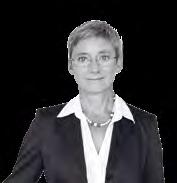
We are constantly reminded of why a 1.5°C limit is so important: Extreme weather events, droughts and floods are already occurring more frequently, and will continue to accumulate as temperatures rise. Famines and the loss of biodiversity will have an impact of yet unknown proportions on our planet.
Staying within the 1.5-degree target will only be possible if the co2 emissions curve falls steeply from 2025 onwards at the latest, and if negative co2 emissions prevail in 2050, i. e. if more co2 is removed from the air than is emitted. co2 absorption by trees via afforestation projects or carbon capture and storage are examples of how this can be achieved.
At the same time, it is essential to transition as quickly as possible away from fossil fuels such as natural gas, oil and coal to hydrogen and green gas. We must act urgently to stop further co2 emissions and must shift our energy production to renewable energy sources.
Recommended Action. As a board member of an energy utility company, I have made it my mission to promote the expansion of renewable energy generation plants. There are three concrete recommendations for action:
The development of renewable energy requires large investments. It is therefore important for policymakers to understand that investments in domestic energy supply pay off. This can play a crucial role in decarbonisation while simultaneously ensuring security of supply and stability of electricity prices. Energy utility companies must be allowed to make profits so they can invest in the development of renewables.
1. All efforts of climate action are in vain unless they are supported by people. The »NIMBY« (not in my backyard) phenomenon shows that people often oppose projects in their immediate vicinity. It is therefore necessary to include local residents in the planning process early enough so as to take into account existing interests and concerns. Policymakers need to educate the public about the importance of climate change and the need for action to reduce emissions in order to increase understanding and support for climate action projects. Greater acceptance of projects can also be facilitated through various forms of citizen participation, such as crowdinvesting or energy communities.
2. The current length of procedures prevents the expansion of renewable energy projects from being implemented as quickly as they should be. Despite the EU speeding up permitting processes for renewable energy projects, the savings in time and effort are limited. The onus is on policymakers to implement measures that add real value.
3. The time for words is over. Actions are our only way of saving this one planet we live on!
short bio
14 EUropEAN ForUm AlpbAch pANorAmA
»Staying within the 1.5-degree target will only be possible if the co2 emissions curve falls steeply from 2025 onwards at the latest.«
ChatGPT and Me: How we imagine technology says a lot about us
Barbara Prainsack, Professor and Director of the Research Plattform Governance of Digital Practises, University of Vienna
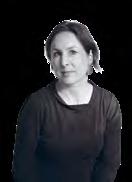
ChatGpt is a natural language processing tool that conducts human-like conversations. Many consider it a revolution that will leave no domain of life untouched. A quick look at the field of education could be seen to illustrate this: The tool writes essays for students and even passes exams.
Other forms of artificial intelligence (AI) are also seen as societal game changers. Many of them are positive: AI could relieve us of repeti·tive tasks, help tackle climate change, and assist in disease research. At the same time, AI is feared to cost 300 million people their jobs, and even threaten democracy.
Both dystopic and utopian visions should be taken with a grain of salt. The fear that AI will cost hundreds of millions their jobs is there also to keep the fear of unemployment alive: As labour shortages are shifting the balance of power in favour of employees, it’s convenient for some societal groups if the former don’t demand too much. The specter of AI comes in handy.
History teaches us that privileged groups have often fueled concerns about technologies that threatened their own prerogatives. When the telephone was invented, elites worried that the uneducated masses would use it to plan riots and indulge in other immoral activities. New technologies were especially suspect, the communication studies scholar Carolyn Marvin argues, when they changed social hierarchies. Telecommunication technologies or electric light allowed »lower classes to crash barriers otherwise closed to them« , Marvin writes in her book »When Old Technologies Were New« . Fear of technology often moves from the top down.
Video Didn’t Kill the Radio Star. This does not mean, of course, that we should uncritically cheer all new technologies. But the concerns that dominate public debate are not always the ones we should worry about.
First, new technologies are rarely used as imagined at the time of their development. For
example, the invention of radio was expected to put an end to newspapers, and then television was prophesied to do the same to radio. The actual uptake of technology is often tree-shaped rather than linear: People keep using older technologies alongside new ones. We read the paper at the breakfast table and watch or listen to our favourite show on our way to work. We buy train tickets online but purchase our fruit and vegetables where we can see and touch them. Each technology is used for what it does best.
Second, technology replaces certain human activities, but it also necessitates new human labour. AI excels at processing large datasets and discovering patterns – but it lacks critical thinking and the ability to see things in context. It does not understand how data is connected to the world. Chat G pt, for example, cannot distinguish correct from incorrect information and even makes up sources to support its own false statements. Rather than as windows to reality, such AI tools should be treated as mirrors reflecting our own perspectives and blinders. They invite us to engage with these mirror images to improve the original – and not to treat the reflections as normative in any way. Also the fact that new forms of AI make it increasingly difficult to distinguish originals from fakes mirrors societal debates that treat populist lies as »alternative truths« and scientific facts as a matter of perspective.
AI will indeed affect many aspects of our lives. It will be a threat to our societies – and even to democracy – if we allow it to be used in the service of the very same values that have already harmed people and the planet: the fetishisation of competition and growth, a notion of efficiency that neglects human needs, and the suppression of dissent. Whether AI will do this is up to us.
Research
short bio Barbara Prainsack is professor of Comparative Policy Analysis, and director of the
Platform Governance of Digital Practices at the University of Vienna. She is also the Chair of the European Group on Ethics advising the European Commission.
15 ExpErt opINIoN
»Concerns about technologies have often been fueled by the privileged because they felt threatened.«
Climate Crisis: A battle to be fought in Brazil
»Isn’t Norway the one killing whales up there, on the North Pole? The one extracting oil? They can’t be an example to us. Take the money and help Angela Merkel reforest Germany. « Thus spoke a few years ago one of the democratically elected leaders the global community was happiest to get rid of, Jair Bolsonaro, when asked about the financing of the Amazon Fund.

The Amazon Fund was launched in 2008 by the then, and now once again, incumbent Brazilian President Lula. The Fund’s objective was to collect money from international public and private sources and in turn fund various sustainability initiatives in the Brazilian Amazon, ranging from sustainable development to deforestation prevention, from conservation initiatives to sus-
tainable exploitation promotion. The declared objective was, paraphrasing, essentially for the world to finance and Brazil to administer and spend. The research into the fund’s success has hitherto been spotty, with people having to rely almost exclusively on data provided about the Fund itself about both the donations and the spending.


The Fund seemingly worked for a few years. Lula’s first and second terms saw sharp decreases in the deforestation rates of the Amazon – albeit with some clear and never forgotten instances of utter lack of courage on the policymaking side of affairs – and the Fund was raking in quite the sizeable donations for a few years; and obviously spending them. Between 2009 and 2018
 Jadran Vecchiet, Journalist, Italy | Vice President Club Alpbach Senza Confini
Jadran Vecchiet, Journalist, Italy | Vice President Club Alpbach Senza Confini
the biggest donor was the Norwegian State, followed by the German Federal Government, followed in turn by the Brazilian oil conglomerate Petrobras.

Global north rhetorics. 2018 changed things. A populist tide, an unpopular technocratically leaning unelected government and a bipolar legacy left by the fourteen years of Workers’ party rule ebbed a firebrand populist, Bolsonaro, to power. Bolsonaro’s stance on climate change and deforestation was shoddy if we’re euphemistic, catastrophic if we’re being realistic. His Minister for the environment was at one point nicknamed » Mister chainsaw « due to his lax and laissez-faire stance on illegal logging. In the months immediately after his ascension to the presidential office, they soon gutted the administrative structure of the Fund, leading to the two main international donors, Norway and Germany, halting their funding. Bolsonaro did, in fairness, promise a new administrative structure, but the uncertainty was enough to scare donors away.



I used to live in Brazil. Maybe I was not as conscious about it when I lived there or maybe climate and the Amazon preservation really weren’t as big discussions then and there as they are now and here. But I distinctly remember the first time I discussed the Amazon with my Brazilian acquaintances and family. It must have been in the summer of 2019, when Bolsonaro had already stepped into office and Greta Thunberg had already become the target of old white men’s outrage. A person I still hold very dear told me back then »You should not talk about the Amazon, you do not know how things are in Brazil« . Setting aside the fact that I have visited the Rainforest more often than this person, this highlights a real problem in our, Western-centric, European outlook on climate affairs. How do we get the others on board? Is our rhetoric enough?
Global South practices. We often like to pat ourselves on the back for symbolic achievements, like the implementation of free public transport somewhere, while all too often overlooking far bigger things. Farmers are still burning down forests to expand their intensive meat farms – meat that, as many research projects have proven, all too often ends on our plates in this vortex of hyper-consumption hitherto un-
seen by mankind. A fund for the preservation of the Amazon still must have »sustainable development« and »sustainable exploitation« in its status, to make it acceptable. Countries are still financing social programmes through extractivist practices that severely harm the environment. Companies are still flooding protected areas to augment electricity production. Indigenous populations and activists are still being slaughtered by illegal exploiters of natural resources and exposed to dangerous diseases.
The outlook is bleak and I, having dabbled in climate but not being strictly a climate scientist, don’t have all the solutions. But we need to discuss all of this with everyone. We need to listen to the perspectives of everyone in this debate and set up a truly global and truly fair transition. What is still going on in the Amazon – which I am using as an example simply due to me knowing it better, but other such areas are no exceptions – are often fully fledged out environmental crimes. Seen from this perspective, getting everyone really and earnestly on board, is not a fight that can be fought with coercion. We must start involving everyone into the conversations. Even then we might not escape the »the Amazon is ours and we do what we see fit« rhetoric – that even the Brazilian progressives all too often dabble in – but at least we will know what we are up against. The fight against irreversible climate change is a global one and cannot be boiled down to electric cars.
One of Austria’s favourite authors, Stefan Zweig, once dubbed Brazil »The Land of the Future« . Now Brazil and all the lands not strictly part of the Global North, West, developed World, or any other definition one may adhere to, are it again. The multifaceted battle against climate change will be fought and lost there, making our future ever so dependent on them.
short bio Jadran Vecchiet, is a trilingual journalist with a strong focus on Latin American politics and ecology. With extensive contributions to Primorski dnevnik since 2019, Jadran showcases his expertise and captivating insights.
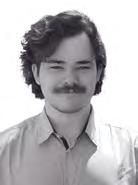
17 FAN VOICES
FAN voIcES
»The fight against irreversible climate change is a global one and cannot be boiled down to electric cars. How do we get the others on board?«
Reminder: Democracy is for everyone
Christopher Rindhauser, Pantarhei Corporate Advisers, Vienna | Member of the Club Alpbach Lower Austria





Most western democracies share their basic ideas, structures and institutional framework: Among others, they have some kind of a constitution, a democratically elected parliament, regular elections and a separation of powers. These fundamental structures have been formed in the past couple of centuries and in many aspects still resemble the original design. Austria’s constitution, for example, was designed around a hundred years ago – of course it has been edited and adapted in the past decades, but still comprises numerous basic laws that have been written back then. The British democratic system is even older and contains some more archaic elements like the House of Lords, where the British nobility have their say in British politics.
A century ago, our world looked completely different. People were not mobile, many were
illiterate and generally had way fewer educational opportunities. Today, however, people are extremely well educated, mobile and thanks to digitalisation, can access almost any kind of information within a few seconds on their phone. As a result, wouldn’t our democratic systems also have to adapt to these circumstances?
Dare more democracy. In a democracy, politics is the place where we negotiate how we live together. To create a place where everyone can thrive, we need everyone to get on board and help shaping our society. Don’t the people living in a particular place know best how to make this place worth living? In this sense: We must dare more democracy!
In order to actively shape our democratic systems, we have to learn, negotiate and try new
Christopher Rindhauser, focuses on (higher) education, communication, and (European) politics. With a passion for shaping the future, he explores the intersection of politics and education, aiming to strengthen democratic systems.

ways of democracy. How can we do that? Education is the key! Education is the cradle of learning how to jointly strive for a better future. However, we should not see education in a narrow sense as something that only happens in school or university, but something that is deeply integrated in a democratic society: Learning happens everywhere and all the time and we need to harness the knowledge and experience of each citizen to crack open our democratic systems and forge our future societies.
In order to actually involve people in politics, we have to democratise our democracies. How to go about it? We have to integrate all parts of society so we can jointly learn and experience what politics actually means for our daily lives: Young and retired people should learn with and from each other. University students need to engage with blue collar workers. cEos have to get in discourse with people who live on minimum wage. Of course, in established democracies, there are already all kind of political parties and advocacy groups; these are essential to fight for specific interests, but thus also operate with a very narrow view of politics. We cannot risk to have only a small number of opinions of elected representatives (however competent and profes-
and report back to the Irish parliament. There are other examples like the Climate Council (Klimarat) in Austria or the Conference on the Future of Europe, where citizens were involved, but there is usually the same flaw in the design of these initiatives: However noble their intentions, they are usually only advisory in nature and thus exert only limited influence. To contribute to actual change, democratising initiatives need to be institutionalised and equipped with legislative competencies to be capable of action.
sional they might be) deciding on crucial policies. Only with the full diversity of individual life realities we will be able to take on the enormous challenges ahead.

Present examples. Who has already dared more democracy? Ireland has established Citizens’ Assemblies, which bring together randomly selected citizens to discuss and consider important legal and policy issues like climate change, abortion rights or drug use. These Citizen’s Assemblies then make recommendations
Future utopias. How can we do that? Most countries in Europe have similarly organised parliaments with a largely ceremonial head of state who formally opens and closes parliament, a large elected lower house, and a smaller, often not (directly) elected upper house. Austria’s parliament consists of two chambers: the National Council, Austria’s main federal legislative authority whose members are elected directly in general elections; and the far less powerful Federal Council, whose members represent Austria’s states and are sent to the Federal Council by the respective state parliaments. It has often been questioned whether a small country like Austria needs a parliamentary chamber to represent its provinces – this has historical reasons and reflects Austria’s federal structure, but does it actually serve the need of its citizens? So why not establish a Council that consists of randomly selected citizens, similar to Ireland’s Citizens’ Assemblies? To create a space where a broad diversity of citizens can come together, learn with and from each other and negotiate democracy. For some people, this idea will sound like utter nonsense – what it could definitely be. But still: To achieve social progress, we always have to question the status quo and think radically! We need to follow utopian visions to move forward. I am convinced that every single person and society as a whole have got the power to shape how we live together. We need dreams to strive for – for average people who lived 150 years ago, the democratic rights of an average European today must seem unbelievable and our aim for the future must thus be to realise today’s democratic utopias.

19 FAN VOICES
short bio
»We cannot risk to have only a small number of opinions of elected representatives deciding on crucial policies.«
FAN voIcES
FINANCE
Europe’s post-war success story has faltered over the last 20 years. This has led to a decline in competitiveness, economic imbalances, and subsequently to an increase in social inequalities. The Russian war of aggression against Ukraine was a turning point for European security.
EFA experts explain what is needed for a resilient, competitive and strong Europe and how our independence should be secured in the coming years.
AND
AND AND AND AND AND SECURITY SECURITY SECURITY SECURITY SECURITY SECURITY


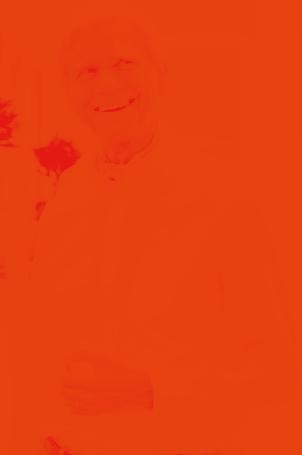


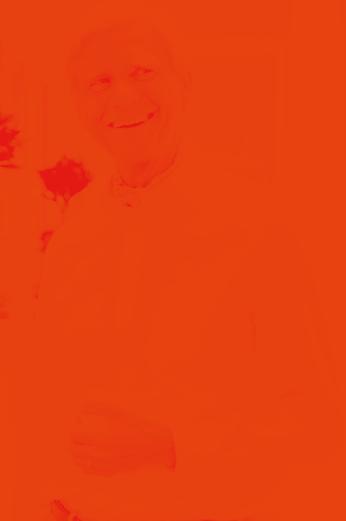
AP
Alpbach
Panorama
HH
Hermann Hauser
RF
22 EUropEAN ForUm AlpbAch pANorAmA
Rosanna Fanni
Europe’s Struggle for Technological Sovereignty
How do economic challenges relate to digital policy, foreign policy and transatlantic relations? We asked Herman Hauser and Rosanna Fanni: How can Europe finance the global race for technology and innovation?
AP As an entrepreneur, venture capitalist and innovator: What are the biggest challenges European tech companies are facing today?
HH Europe’s significant problem is simply the sheer amount of money compared to its two main competitors, the US and China. While the US has four times more venture capital investment in deep technology than Europe, China has even more, not only from venture capital, but also from the Chinese government.
AP Given the financial challenges, what strategies do you believe Europe can implement to overcome these challenges and promote innovation?
short bio
Hermann Hauser: In his career as an entrepreneur and venture capitalist, he has founded or co-founded numerous companies in a wide range of the technology sector and has supported many start-ups as well.
HH A positive thing is that, for the first time in history, European venture capital is now giving better returns than US venture capital. The reason is that European universities are comparable to American universities in terms of the quality of their research output. We finally have an ecosystem that is beginning to successfully translate the richness of its research output into successful companies. Although the UK is still the largest venture capital market in Europe, Germany and France are growing rapidly, and even Austria has three unicorns. We finally see a cultural change, with universities and a knowledgeable venture industry supporting their growth. People now believe that they can build a unicorn in Europe and don’t necessarily have to go to Silicon Valley. However, attracting experienced management talent remains a challenge in Europe, where it’s still uncommon for individuals from large companies to join start-ups.
short bio
Rosanna Fanni: She is researcher and project coordinator at the Centre for European Policy Studies (cEpS), working on digital and foreign policy, as well as transatlantic relations.
AP You are the coordinator of the Trade and Technology Dialogue, an EU-funded project to support the EU-US Trade and Technology Council (ttc). What can we learn from the US and vice versa?
RF When it comes to funding, investment and talent, the US operates on a larger scale. The US government can provide much more money, if you look for example at the Inflation Reduction Act, and through venture capital, as Mr. Hauser men-
»Attracting experienced management talent remains a challenge in Europe, where it’s still uncommon for individuals from large companies to join start-ups.«
—HERMANN HAUSER
23 INtErvIEW
Investing in education, innovation and research will sustain Europe as an independent economy with global impact.
Sharing the benefits of growth is an important responsibility for governments, media, science and business. To do so, we must continue to build on the strenghts of our social market economy.
tioned. Even though there is a lot of support for SmEs (small and medium-sized enterprises) in the EU , this support does not always trickle down to what companies need in order to grow. However, we do have many competitive companies in various sectors such as 6G or AI that might not be large multinationals, but that are actually quite well positioned. Rather than just copying the US and building big tech companies like Facebook, Google or Apple, which are based on data scraping and extraction, a practice that violates EU fundamental rights, I think we must find our own European model. It’s not only important to build big tech companies, but also that people use technologies they can trust. Therefore, the EU places the development of human-centric and trustworthy technology at the heart of its tech innovation ecosystem.
AP You both mentioned that there is not enough money available in Europe. Mister Hauser, how can Europe finance the global race for technology and innovation?
HH European venture capital (vc) is now growing quite rapidly. But it’s only one quarter of American venture capital. So, there’s a lot of distance to make up. However, American vcs are now investing more in Europe, which is a positive sign. There are also initiatives like the European Innovation Council (EIc), which is the largest deep technology fund in the world with € 10 billion to spend over the next seven years. As board member of the EIc , I am very proud to share that the EIc fund has a unique rule requiring that 50 % of the money has to come from the market. This means that the initiative crowds in the markets so that we are doing this together with the vc industry. I’m very pleased to report that for every euro the EIc invests, we receive three euros from the market.
AP Ms. Fanni, you already mentioned the Inflation Reduction Act (IrA), how is the IrA impacting the EU-US cooperation?
RF The Inflation Reduction Act is basically a form of subsidy from the US government to spur investments in green, carbon-neutral technology. This measure was interpreted as a serious risk against European industrial interests. The fear was that European companies would relocate to the US because of the subventions. However, both parties agree on the underlying motive of the IrA , which is to promote climate-neutral technology and developments towards a sustainable ecosystem. Thus, after the
»It’s not only important to build big tech companies, but also that people use technologies they can trust. The EU places the development of human-centric and trustworthy technology at the heart of its tech innovation ecosystem.«
—ROSANNA FANNI
24 EUropEAN ForUm AlpbAch pANorAmA
initial shock, the reaction was that the EU and US need to align and show that this is something the transatlantic relationship can work out together. So, this was a positive development after all that also proved the usefulness of the Trade and Technology Council as a coordination mechanism.
AP In your opinion, what is the most important question that should be addressed at the European Forum Alpbach 2023?
HH The issue of technological sovereignty should be a central theme. I’m writing a book on the subject. Initially, I believed that there will be three major technology powers – the US, China and Europe – that have a chance of being truly sovereign. My argument in favour of Europe was that it is the only one of the three that has a history of accommodating national differences and it’s the only area in the world that has a governance layer above the nation state. However, as I was doing more research, especially on semiconductors, it became clear to me that sovereignty is not really possible, because of the hyperconnectivity of our supply chains. Instead, the focus should be on ensuring access to critical technologies, as a human right. That would be an interesting topic to discuss in Alpbach as well.
RF In addition to what Mister Hauser said, I think it’s crucial to better explore the impact of technology on democracy. This is something that has gradually evolved with the spread of mis- and disinformation. Now we are seeing the rise of AI and large language models like ChatGpt, which had a profound impact on entire sectors, such as education and learning – in just a few weeks. We will see a lot of fundamental, fast progressing change through emerging technologies. This will also affect the European media landscape, where there is a big risk that the sector will increasingly become automated. Therefore, we must ask ourselves how we want to govern these technologies: not only how to regulate, but also to what extent we want our reality to be shaped by technology.
Defining Europe’s role in a multipolar world: The EU must position itself amidst the global competition between the United States and China and rethink its relations with emerging countries.
We need to reduce European dependencies and strengthen our resilience against hybrid attacks on critical infrastructures and our political systems.
The EU’s strategic interests have to undergo a thorough analysis to re-appraise the Union’s security position in light of the Russian war against Ukraine.
»Now we are seeing the rise of AI and large language models like ChatGpt. We must ask ourselves how we want to govern these technologies.«
25 INtErvIEW
–ROSANNA FANNI
Europe’s Economic Lessons from Russia’s War against Ukraine
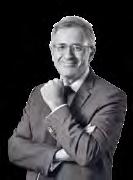
Russia’s full-scale invasion in Ukraine in 2022 has surprised many experts in economics, politics and geopolitics. Those who have not expected this war to take place have correctly pointed out ex post that this was Putin’s mistake – probably the biggest one in his more than twenty years in office. He has underestimated the Ukrainian resistance and the unity of the West and overestimated his own army. Yet, such mistakes are not a bug but a feature of dictatorial regimes. Dictators suppress political opposition and independent media thus replacing critical feedback with yes-man. This is why democracies should expect such mistakes to be made by dictators again –and therefore learn lessons from the 2022 Russia’s war. As an economist, I will focus on three economic lessons.
Europe’s dependencies. The first and most important lesson relates to the role of economic interdependence. Since Montesquieu, political scientists have believed that international trade leads to peace between the trading nations – as a war is too costly. In 2021, the European Union was Russia’s most important trade partner, accounting for 37% of Russian trade. This has not prevented war – as Putin believed that Europe was too dependent on Russia and would not introduce harsh sanctions. Europe’s overall dependence on trade with Russia was much smaller (6 % in 2021) but Europe did rely on Russia in several categories of goods, in particular, in the imports of natural gas. EU imports 83% of its natural gas. Before the war, Russia was the most important gas supplier to Europe (50% in 2019 and 40% in 2021). This has made Europe’s decisions to sanction Russia in 2022 much more difficult and thus slow. The cost of this energy interdependence was high. The fact that the European oil embargo and oil price cap on Russian oil took effect only in December 2022 allowed Putin to benefit from high oil prices in 2022 and finance his war.
The lack of support. The second lesson relates to the ambivalence of the developing countries regarding the war. Many of them did not
support Western sanctions against Russia and have even helped Putin to circumvent the sanctions. This was partly driven by the public opinion in these countries that did not understand why this war should be treated differently from other, often much bloodier wars in non-European countries – which the West has neglected. But there were economic explanations as well: the West’s lack of generosity regarding vaccines during covID-19 and the West reneging on its 100 billion dollars commitments to help developing countries fight climate change.
Missing strategy and budget for defence and security. Third, this war has taught Europe that it should spend more on defence and security. Even united, Europe would not be able to supply enough military and financial support to Ukraine without America’s help. This is especially important given the EU’s interest in »strategic autonomy« during the upcoming US-China geopolitical rivalry. The war has shown that strategic autonomy is unlikely to be feasible in the immediate future – and would require much more resources in the long term.
In the meanwhile, even if the EU prefers not to choose sides in the US-China’s new Cold War, it may be forced to. This will be much harder than the EU’s decoupling from Russia – that the EU has successfully completed in 2022– because China is a much more important trading partner for Europe than Russia. International trade – as Montesquieu correctly emphasised – is mutually beneficial, and economic autarky is costly. Yet, 2022 has also demonstrated how costly the war is. In the end of January 2022, the International Monetary Fund forecast the global GD p to grow in 2022 by 4.4 percent – a full percentage point above the actual performance of 3.4 percent.
One percent of the global GDp is a trillion dollars. Reducing democracies’ dependence on trade with their authoritarian peers will be costly but if this may help to signal that democracies will immediately respond with large-scale sanctions – and thus prevent the war, the »friend-shoring« policies may eventually be the lesser evil.
short bio
Sergei Guriev joined Sciences Po as a tenured professor of economics in 2013 after serving as the Rector of the New Economic School in Moscow from 2004-2013. Between 2016-19, he was on leave from Sciences Po serving as the Chief Economist of the European Bank for Reconstruction and Development.
Sergei Guriev, Professor of Economics and Provost, Sciences Po, Paris
efa 2023
26 EuropEan Forum alpbach panorama
Sergei Guriev will be attending Europe in the World Days.
The New Geopolitics of Europe
The Russian invasion in Ukraine created a new geopolitical fact: From a buffer state, Ukraine has become a border state. De facto, the independent Ukraine that is fighting for survival already today is a member of the Western security architecture. The EU underscored that by according the country candidate status.
Consequently, it now is an important EU interest that Ukraine survives as the strongest possible border state, on as large a territory as possible, with access to the sea. For if Ukraine falls, the EU will share a long border with a second Belarus: a Russian satellite that no longer makes its own decisions, which would complicate deterrence and defence. A victorious Russia might also see Ukraine as a springboard for further incursions into the wider Black Sea and Mediterranean areas.
This reconfirms the traditional importance of Turkey’s geopolitical position: not as a buffer against immigration and other challenges from the wider Middle East, as the EU has been treating it for years, but as a cornerstone of the bulwark against Russian encroachment. If Turkey does not fully assume that responsibility, Europe’s South Eastern flank remains wide open.
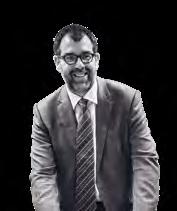
The fronts at the European borders are getting harder. If in the Black Sea the geopolitical situation remains fuzzy, elsewhere in Europe the geopolitical dividing lines have hardened. Most evidently, Finland and Sweden have both abandoned their long-standing neutrality to join NAto
On the other side of the line, Belarus has become entirely vassalised by Russia. During the large-scale protests in 2020 and 2021, Moscow declined to intervene militarily. Now, Russia has marched tens of thousands of troops into Belarus, and has announced the deployment of tactical nuclear weapons.
The future of Moldova, which also received EU candidate status, has become closely entwined with that of Ukraine. If the latter falls, Moldova could be the next target. If it holds, both Moldova and Ukraine are set on the path to eventual EU membership.
The Russo-Ukraine war has thus resulted
in a sharply divided Europe again; the buffer zones are disappearing. NAto’s New Force Model reflects this. Once again, as during the Cold War, the »border« will be divided in sectors, each allotted to a group of Allies that will maintain a rotational military presence there. Relations between the West and Russia will indeed resemble a »mini–Cold War«: mini, as long as the entire world is not divided into two rival blocs that gradually decouple from each other.
Europe’s geopolitics is in a state of transition. It must also be understood that the consolidation of an enlarged EU had already changed the geopolitics of Europe long before the current war. In the past, Russia was one of several European powers that fought each other in ever shifting coalitions, from the Seven Years War to WWII Today, there no longer is a European system of states. The EU, which has ended the possibility of war among its Member States, is now in itself the core of the European security architecture (with the alliance with the US as a further guar antee against threats from outside the EU Since Russia cannot join the EU, it will never be fully part of the European security architecture in the sense of having decision-making power over its members.
The main question therefore is: Does Rus sia want cooperative or confrontational relations with the EU? If a pragmatic Russian leadership emerges, which will likely remain authoritarian, but sincerely seeks a peace agreement with Ukraine, constructive relations may be restored, and sanctions phased out. But the economic decoupling from Russia, in the energy sector in particular, is structural, as is the distrust that Moscow has sowed.
short bio
Sven Biscop lectures on grand strategy and great powers at Ghent University, and directs the Europe in the World Programme at Egmont – The Royal Institute for International Relations in Brussels.
Sven Biscop, Professor at the Egmont Institute & Ghent University
»The EU, which has ended the possibility of war among its Member States, is now in itself the core of the European security architecture.«
efa 2023
27 ExpErt opINIoN
Sven Biscop will be attending Europe in the World Days.


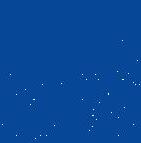
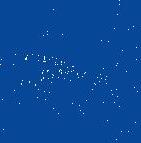

Europe must act now to remain competitive
Tetiana Gorokhova, Associate Professor (Pryazovskyi State Technical University, Ukraine); Researcher in Centre of Advanced Internet Studies (CAIS), Germany. | Member of the IG Alpbach Kyiv
Europeans have been among the biggest supporters of an open, rules-based economic order. But even before covID-19, this order was under enormous pressure. The most important structural feature of our world today is not multilateralism, but bipolar competition between China and the United States, Europe’s two most important economic partners. As a result, the nature of globalisation is changing. The real danger is that Europeans will be caught in the middle of the Sino-US competition. What is the next step for a functional global market? And what is the role of Europe in this global market?
The world entered 2022 with some optimistic expectations, since the previous year, despite the manifestations of a new pandemic wave, showed the possibility of an accelerated recovery in major countries and a consequent recovery of the global economy as a whole. However, by the end of February 2022, all the positive expectations and positive trends that had been built up were destroyed by Russia.
Russia’s large-scale invasion of Ukraine profoundly altered the global political, economic, security, and humanitarian map, dividing world history into »before« and »after« and raising the issues of war and peace to new heights of self-determination of human civilisation.
The industrial base accounts for one third of China’s GDP. Globalisation is an inherent characteristic of the modern world, manifested in the rapid expansion of flows of goods, services, capital, and labour. The interpenetration of the economy, capital, knowledge, and culture is considered one of the main factors in the formation and expansion of a multipolar world.
The multipolar world (it seems) began to take shape at the turn of the millennium. Whether it is the error of the crisis process (the global financial crisis of 2008-2009 and the covID 19 crisis of 2020-2021) or the failure to take into account the expectations of many processes and situations, there are reasons to believe today that, every year, global politics and economics are increasingly acquiring the characteristics of the so-called polar world.
We are, of course, talking about the relationship between the United States, China, and the European Union, which year after year maintain their global political leadership and display remarkable economic, scientific, and technological achievements.
At the start of China’s rise, Mao Zedong was indignant: »What are we able to do now? Chairs and tables, and grow wheat? But we cannot produce a single car, aircraft, tank, or tractor!« Seventy years later, China is a global factory producing almost everything from electric cars to combat underwater drones. The industrial base accounts for one-third of China’s GDp (Statista, 2022).
29 FAN VOICES
»Given that the EU economy relies heavily on trade with the US and China, Europe would like to opt for a ›neutral‹ position and avoid making decisions.«
FAN voIcES
Tetiana Gorokhova is Associate Professor at Pryazovskyi State Technical University in Ukraine and Researcher at the Centre of Advanced Internet Studies (cAIS) in Germany. Her scientific interests are digital economy, digital media, e-democracy, and circular economy. Tetiana has more than 70 scientific works and proceedings.

At the same time, since the 2000s, China (prc) has been a major creditor of the United States, purchasing large amounts of US Treasury bonds and notes. The main purpose of this move is to support China’s economic growth, which depends heavily on the availability of Chinese products in the US market. The idea is that prc loans to the US by buying US foreign debt will allow the US to buy Chinese products.
This is a win-win strategy for both countries: China gets a large market for its products, while the US benefits from low prices for Chinese goods. As of May 2019, China had $ 1.11 trillion, or about 5% of total US government debt (total debt is $ 22 trillion). At the same time, China’s rapid economic growth has inevitably led to an increase in political and military power (Eurostat and UNctADtStAt, 2019).
Strategic dilemma for the EU . Since the start of the US-China trade confrontation in 2021, the European Union has found itself in a »strategic dilemma« , especially in the economic sphere. Indeed, given that the EU economy relies heavily on trade with the US and China (which are equal trading partners), Europe would like to opt for a »neutral« position and avoid making decisions. However, in today’s world, the separation of political and economic interests is impossible. It is somewhat surprising that the technological confrontation between the US and China is now focused on Europe. On the one hand, this is understandable: the influence and importance of a country that claims to be a world leader is determined by its level of creation and use of cutting-edge science-intensive technologies. The European Union, for example, has been and remains an importer of semiconductors
and, in many ways, remains the base of technologies and innovations on which modern information and communication platforms are based.
Strategies need to be reconsidered. The China factor is increasingly important in the EU’s relationship with the US and in international decision-making. Moreover, the window of opportunity for European options is narrowing. As the two world leaders (the US and China) become stronger, the EU will probably find itself at a crossroads, and hence at a strategic disadvantage (including in global information and communication systems).
So, how to strengthen the EU’s independence in the global market and increase its financial strength?

1. Relocation of production. The risks of creating political monopolies have long been known in the economic world. Initially, American companies, and now European companies, have many reasons to revise their investment strategy and relocate production. They recognise that the risks and strategic implications they have previously ignored are large enough to outweigh the short-term benefits of lower wages in emerging markets.
2. The competition between the US and the EU in relation to the accelerated deployment of climate-friendly energy technologies and the return of production from China creates a number of opportunities for Ukraine. However, the first step is to revive the Ukrainian industrial policy.
3. The support and enhancement of entrepreneurship development, start-up projects, and intellectualisation of economic sectors.
short bio
30 EUropEAN ForUm AlpbAch pANorAmA
For independent readers



Get the news app of “Die Presse” with many useful features and stay informed always and everywhere. Download here








32 EUropEAN ForUm AlpbAch pANorAmA
The EU must readdress its current cultural policies
Jan Farfal, University of Oxford | Member of the Club Alpbach Poland
»Europe is an economic giant, a political dwarf and a military worm« claimed Mark Eyskens. It’s a high time to redress this notion and transform the EU into an active global player – to reduce military dependency on the US, economic dependency on China, the lack of sufficient cohesion inside – to find enough grit to promote its civilian and climate agenda in the new global setting.
By the turn of the millennium, the European bright new future seemed to match an emerging cosmopolitan and liberal world order. The integration of the European continent into the European Union served as a remedy to its dark past, and reinforced the European sense of exceptionalism. The creation of this unique project allowed Europeans to reimagine themselves as protagonists of a renewed spread of universal
human values – from democracy, peace, individual liberty, to emancipation, rule of law, and human rights.
Today, it is widely understood that the optimistic and often naive belief that the transnational European project would serve as a model for the rest of the world has come to an end. The emerging multipolar world renders the European vision of the world remarkably fragile with the growing rise of China, resurgence of populism and continuous hostilities of Russia. The challenge is both geopolitical and ideological. The Oxford led project »Europe in a Changing World« together with the EcFr , conducted an opinion poll which found that 77% of Chinese citizens believe that China comes closest, compared to other countries, to having a real democracy. 51% of Indians believe that Russia remains their ally, sharing interests and values. This has not changed since the brutal invasion last year, with another 29% of Indians believing that Russia is their necessary partner. Finally, the most popular sentiment amongst Chinese, Indian, and Turkish respondents was a belief that the war should end as soon as possible » even if it means Ukraine giving control of areas to Russia«
Those results testify that Europe is now facing the emergence of a multipolar world significantly incompatible with its own liberal values. Whereas Europe should not undermine the values it stands for, it must show greater resilience in strategic terms. It has not been designed to do so, being a post-conflict or even anti-geopolitics peace project. But external developments demand changes from the Union itself. To safeguard its interests, the European
33 FAN VOICES
FAN voIcES
»Europe should not undermine the values it stands for, it must show greater resilience in strategic terms. External developments demand changes from the Union.«
Union should channel its energies towards defence policy, its reinvigorated enlargement and neighbourhood policy, alongside the return to European cultural production.

The Union’s cohesion is significantly undermined. The Eastern Flank of the EU is dominated by security considerations. Central and Eastern European countries would always prioritise NAto over the EU since Brussels is not able to come up with tangible security promises. The Union’s cohesion is significantly undermined by this. Strategic Compass alongside European Peace Facility has been a good starting point to indirectly remedy those split loyalties but much more should be needed. Joint defence procurement, reactive defence mechanisms, and deployment of joint units at European frontiers should become a trajectory for the future.
The stalemate in the Western Balkans should be resolved. Ukraine’s accession is of an enormous importance but also for reasons that are often overlooked. If not done properly, this would become a second enlargement failure in a row, after a twenty-year stalemate in Western Balkans – meaning that one of the most powerful foreign policy tools that the EU has at its disposal would be gone for decades to come.
The stalemate in the Western Balkans should be resolved, enlargement talks reinvigorated with staged accession and growing propensity of conditional admittance as initiated in the case of Romania and Bulgaria. Any disturbances in the Western Balkans would have wide reverberations for all of Europe, and the European Union should not allow this sensitive region, already surrounded by EU member states, to be susceptible to Chinese and Russian influences – which are the result of Brussels’ weakness rather than the strength of the latter.
Finally, the European voice is often limited to managing migration from Africa and the Middle East, yet completely non-existent when it comes to the large-scale international role that Africa will play within the next few decades. Whereas Africa will receive a prominent position within the new EU Global Priorities document, we should remain vigilant to ensure that cooperation regarding energy, emerging markets, and environmental issues should be explored by Europe.
Europe should rediscover its culture. Instead, Europe should rediscover its undervalued and often overlooked source of legitimacy and soft power – its culture. With its base in the global prominence of European languages, and therefore in much deeper linguistic and literary influences, the Great European Culture should be realised in its widest possible sense, as a transnational output of unprecedented creativity, audacity, and ultimately, beauty. The cultural production of Europe is what defines the so-called European way of life, more so than the European political or economic institutions.
Yet, any notions of universalist aspirations in civilisational development should be dropped down. European »universalist exceptionalism« is a contradictory, naive and completely ineffective imperative – bogged down by accusations of double standards, which unfortunately often is the case. One doesn’t have to even evoke the colonial legacy but highlight some instances of our foreign policy to see that our liberal values can be easily undermined by others.
With the full acceptance of the previously exploitive relations with the rest of the world, and full awareness of all other cultural sensitivities, European culture can have an appeal that is untarnished by its complicated past. Instead of solely promoting values that are the outcome of European stage of development and so easily abused by dubious forces, European culture can become its greatest value. A magnetic force –epitomised by literature, arts, fashion, sports, which is already attracting and captivating billions around the world.
But, to be able to use this source of soft power, the EU must readdress its current cultural policies. Neglecting »great« cultural traditions, writing it out of curricula, thus politicising it in an unsubstantiated way, threatens to undermine perhaps the last source of global legitimacy Europe can claim.
short bio

Jan Farfal, a doctoral candidate, researches Europe’s position in geopolitics and international relations. With a focus on the »Europe in a Changing World« project, he examines perceptions and relations of major countries with Europe, aiming to enhance mutual understanding and future development. Farfal’s expertise also includes Strategic Foresight within the European Commission’s Joint Research Centre.
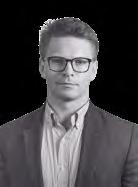
34 EUropEAN ForUm AlpbAch pANorAmA
Haltungsübung Nr. 68








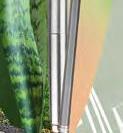
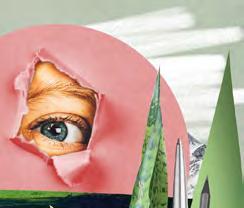


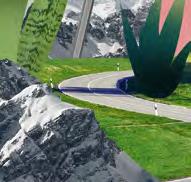
Sich treu bleiben.






Wer unabhängig und frei von jeglicher Agenda kommuniziert, der wird nicht nur verstanden, dem wird auch vertraut. Und genau das macht DER STANDARD seit 35 Jahren. derStandard.at













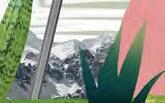


Der Haltung gewidmet.


























































35 FAN VOICES
ARTS ARTS ARTS ARTS ARTS
AND CULTURE
Yana Barinova, guest curator of the Arts and Culture programme, will integrate an artistic frame of reference into the 2023 European Forum Alpbach event. Accessibility is central to her artistic approach. She creates unusual encounters in unexpected circumstances. Barinova visited one of the artists she invited to Alpbach in her studio in Vienna: Soli Kiani.
»Art can reflect on taboo topics – topics that politicans and diplomats aren’t ready to touch yet«
Ropes are everywhere in Soli Kiani’s studio in Vienna’s fourth district: sculptures spring from the ground and are suspended from the ceiling, drawing the eye to the hardy material. Ropes are also at the centre of the work guest curator Yana Barinova has chosen to feature at the European Forum Alpbach 2023: Kiani will produce a new sculpture, which will be placed prominently in Alpbach’s Congress Centrum.
Barinova, a Ukrainian curator, diplomat and project manager who moved to Vienna in spring 2022 due to the Russian war of aggression, met Kiani following a panel discussion that year. They immediately realised that they shared a vision and ethos. When Barinova was chosen to curate arts and culture for EFA23, Kiani was one of the first artists she approached. Barinova explains that what drew her to Kiani’s work was its clear purpose: »What clicked in [Kiani’s] art and philosophy was that I felt this notion of fighting and making good things visible. «
Rope sculptures – a reference to human rights and the strategic use of fear. Kiani’s rope sculpture will be accompanied by a poem by the 13th century Persian poet and mystic Saadi, who reminds us that » human beings are members of a whole« – and that sympathy for others is what makes us human. Kiani’s work is intimately concerned with human rights, and in particular with women’s rights and freedom of expression – both under pressure in Iran, where the ongoing Woman Life Freedom protests have drawn international attention to a long-persisting issue. Kiani, whose uncle was executed after the Iranian Revolution and who grew up in a family that cares deeply about politics, left Iran for Vienna when she was 19. There, she eventually went to art school. For many years, she wanted nothing to do with the politics of her country of birth. Then, in 2016, Kiani changed course: she took time off from producing art, and focused on researching the history of Iran and Islam. Her practice changed. She had to
A UT H OR Theodora
38 EuropEan Forum alpbach panorama
—YANA BARINOVA
Danek
decide what to focus on: »Half-half – it doesn’t work. It only works if you’re 100 percent behind it.«

On the walls of Kiani’s studio, her photographs tell the story of women’s bodies. These photographs were part of an ongoing change in her practice. A post on her Instagram depicting a naked woman prompted her family to question what she was doing, and why. Daughters, wives and mothers, says Kiani, are expected to submit, an attitude that is structural and connected to the violence that is threaded through Iranian society – but also the result of what she describes as collective brainwashing that has lasted for over forty years. The rope sculptures, too, are a reference to human rights and the strategic use of fear. Kiani explains that they refer to public executions by hanging, purposefully held in
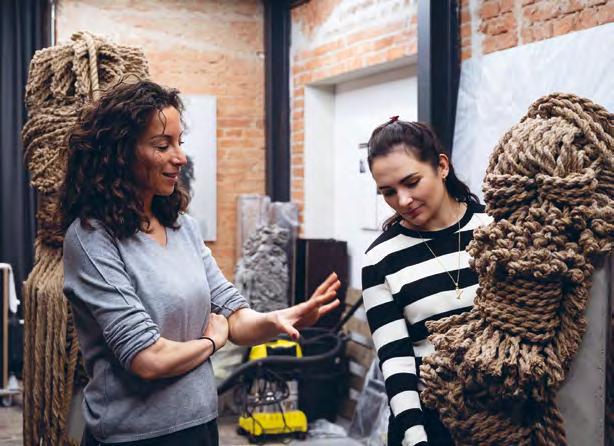 studio
Soli Kiani (left) and Yana Barinova met in Kiani’s Vienna based studio. During the visit, they talked about their motivations for creating art and how their past influences their work.
efa 2023
studio
Soli Kiani (left) and Yana Barinova met in Kiani’s Vienna based studio. During the visit, they talked about their motivations for creating art and how their past influences their work.
efa 2023
39 ArtS AND cUltUrE
The Opening of the arts & culture programme will take place at Europe in the World Days.
highly visible places – villages squares, city centres. Citizens are constantly exposed to public violence and murder, a tactic of intimidation by an authoritarian regime.
The urge to work, to fight. In Kiani’s studio, Barinova and Kiani reflect on the personal toll of working on what are often distressing, even traumatic topics. How does Kiani take care of her emotional and mental health, Barinova wonders? In fact, the question is relevant for both women, and as it turns out, their strategies are similar: their work is also a coping mechanism. »I have the urge to work, to fight,« Kiani says. Barinova agrees: » If I worked on, for example, software, I would be very depressed. I’m coping with my activities, by working on a project; I’m processing what we can hardly recognise yet.«
Kiani is convinced that art is worth the sacrifices she has made: she hasn’t been back to Iran since 2018, and won’t risk going there anymore. Multiple visual artists, writers and filmmakers are currently imprisoned for supporting the Woman Life Freedom protests, and Kiani points out that her work is just an internet search away. Soon, Kiani and Barinova are deep in conversation about the purpose of art. Barinova is explicit about her vision for her curatorial programme:
short bio
Soli Kiani was born in Shiraz, Iran, in 1981. She has worked in Vienna since 2000. Since studying at the University for Applied Arts in Vienna she has exhibited widely. In 2023 she was awarded the Austrian State Scholarship for Contemporary Art.
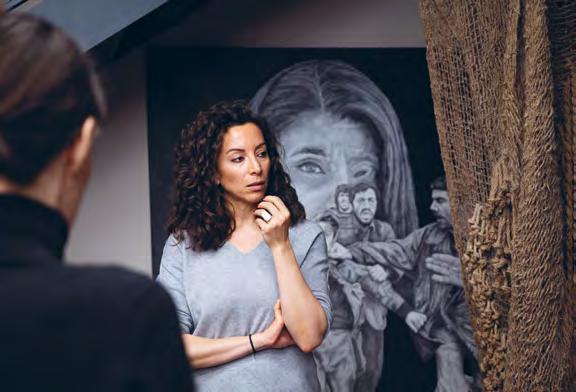
short bio
Yana Barinova was born in Odesa, Ukraine, in 1989. She was Director of the Department of Culture in Kyiv, Ukraine, before the Russian war of aggression. She now curates and produces exhibitions alongside her work at the ErStE Foundation in Vienna on European Policies and Ukrainian Relations.
»If I worked on, for example, software, I would be depressed. I’m coping with my activities, by working on a project; I’m processing what we can hardly recognise yet.«
—YANA BARINOVA
40 EuropEan Forum alpbach panorama
The goal is visibility – or, in the case of aural works, listenability. Visitors of EFA23 will be confronted with art in surprising ways and places, and prompted to rethink given assumptions. Art, Barinova is convinced, permeates everything at Alpbach.
Art has a lighthouse function. Placing art in public spaces, Kiani points out, is a good opportunity to encourage debate about topics that might not otherwise be discussed. That is what immediately drew her to Alpbach, too: it is a space where lively discourse is seen as a central element to keep democracies going. Reflecting on the theme of the up-
Material
Ropes and tools are two of the main features of Soli Kiani’s studio in Vienna’s fourth district. Kiani’s use of ropes for her sculptures refers to public executions in Iran, highlighting the impact of public violence.
coming EFA23, the conversation turns to what a »Bold Europe« means in the context of human rights and arts, as Kiani wonders aloud how often political engagement with human rights seems to stop when it is no longer convenient –when economic benefits seem more important, for example. Here too, artists are vital in dissecting and improving our democratic systems. As we say our goodbyes and leave Kiani to her work, Barinova points out that art has a lighthouse function: »Art can reflect on taboo topics – topics that politicians and diplomats aren’t ready to touch yet. « Kiani, Barinova and other artists will continue the conversation at EFA23.
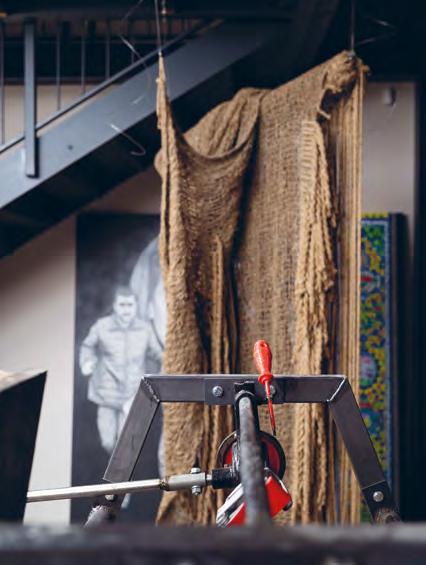
»Placing art in public spaces is a good opportunity to encourage debate about topics that might not otherwise be discussed.«
—SOLI KIANI
41 ArtS AND cUltUrE
Elena Subach: Chairs
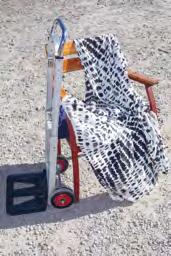
Ukrainian photographer Elena Subach has long been engaged in portraying aspects of her home that seem to her symptomatic, but also question what lies underneath. In the first days of the Russian war of aggression against Ukraine, Subach was based in Uzhgorod near the Ukrainian-Slovakian border, where she joined a group of volunteers, the Transcarpathian Gastronomic Battalion. Refugees had to wait days before they were able to cross the border, and had urgent needs: food and drink, warmth, mental health support. The border quickly became the site of painful scenes. It was the last stop before families were forced to split up, since men were not able to leave Ukraine and had to say goodbye to their partners and children. »I have never seen so much love, [and] I have never seen so much pain«, Subach points out.
Subach, a photographer who often portrays people – as in her »Grandmothers« series – felt unable to take pictures of people under these fraught and highly personal circumstances. It seemed like an intrusion into a private space that had already been compromised by war. Instead, she focused on still lives, turning to chairs dotted all over the site. These chairs, part of an improvised architecture to meet an urgent need, seemed to Subach like » islands among waves of people, that is, places where one could stop and rest for a moment«.
Subach’s Chairs series tells a powerful story of displacement and war, but also of compassion and empathy with people in need. EFA23 guest curator Yana Barinova has chosen a selection of photographs to be shown during the European Forum Alpbach event.
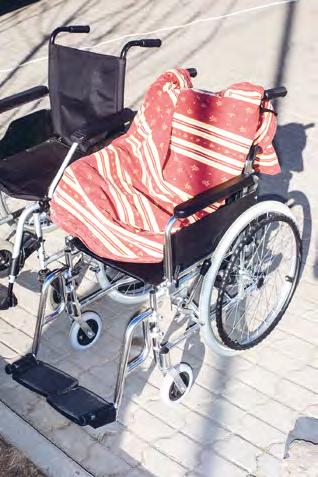
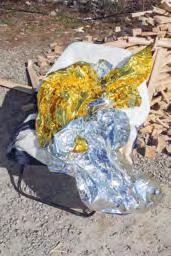 short bio
Elena Subach is a Ukrainian visual artist and photographer. Born in 1980 in Chervonohrad, Ukraine, she is currently based in Lviv, Ukraine.
short bio
Elena Subach is a Ukrainian visual artist and photographer. Born in 1980 in Chervonohrad, Ukraine, she is currently based in Lviv, Ukraine.
»Chairs« tells a powerful story of displacement and war, but also of compassion and empathy with people in need.
42 EuropEan Forum alpbach panorama
Natalia Domínguez Rangel: bleeding blue

Natalia Domínguez Rangel’s work questions how sound affects human bodies and the wider ecosystem. From sculptures to performances, her aim is to utilise her expertise in music composition to contemplate the imperceptible. How does sound affect and resonate with a body physiologically and psychologically? How can critical listening deepen, extend and set connections to acoustic ecologies other than anthropophony, or human sounds?
» bleeding blue« is a sound installation that aims to shed light on the critical issue of ocean noise pollution and its detrimental effects on marine life. The installation features archives of recorded audio by various experts, including marine biologists, scientists, field recordists and sound artists, capturing the raw sounds of the ocean and human intrusion in the underwater environment. EFA23 attendees will simlpy have to wash their hands to interact with the work: The recordings are strategically placed in the bathrooms of the Congress Centrum Alpbach, creating a juxtaposition between the serene sounds of the ocean and the harsh reality of the impact of human activity on marine life. The installation serves as a bold statement, drawing attention to the often invisible but devastating consequences of ocean noise pollution. Through the immersive experience of hearing the raw and unfiltered sounds of the ocean, »bleeding blue« aims to raise awareness about this urgent environmental issue and provoke contemplation about our relationship with the marine ecosystem. It serves as a powerful reminder of the need to take action to protect our oceans and the delicate balance of marine life that is being disrupted by human activities.
short bio Colombian-Dutch art ist Natalia Domínguez Rangel’s work connects architecture, acoustics, technology and nature. She has exhibited widely and teaches at ArtEZ, Arnhem (Nl) and the University for Music and Performing Arts, Vienna (At).

43 ArtS AND cUltUrE
A sound installation highlights the devastating effects of noise pollution on the oceans.
Deborah Sengl: At(tent)ion
Fleeing means escaping and promises liberation from war and crisis. But this escape is not always successful, and is often only the beginning of a difficult and dangerous journey. The path to a better and peaceful future frequently leads via inhumane reception camps. People seek shelter and support, but find themselves far removed from being able to start a new life.
Austrian artist Deborah Sengl has made it her goal to draw attention to this urgent and ongoing issue. At EFA23, she will highlight this issue with an installation of a refugee tent. The UNhcr tent is empty except for blankets; it is impossible to step inside without also stepping on the blankets, literally overstepping a line. Each blanket is a symbol for the biographies of people fleeing, who are all too often ignored.
Sengl’s work at Alpbach follows on from her installation »Escape! « in Vienna’s MuseumsQuartier (2019-21). » Escape! « repurposed escape rooms for an artistic purpose; it combined objects, pictures and experiences by refugees with a unique location as well as Sengl’s cinematic and sculptural work. The aim was clear: to promote empathy and understanding for the fears and challenges experienced by people who are forced to leave their homes. » As an artist, it was important to me to respond to [the refugee crisis of 2015] in an empathetic way, which, ideally, would open doors for people with different opinions and allow them to understand the incomprehensible«, Sengl said.
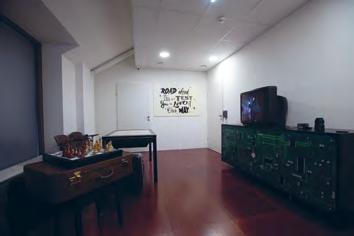
Sengl points out that migration and fleeing is a topic that often seems to be taboo. By working with the UNhcr and Yana Barinova to bring At(tent) ion to Alpbach, she will put it on the agenda of EFA23.
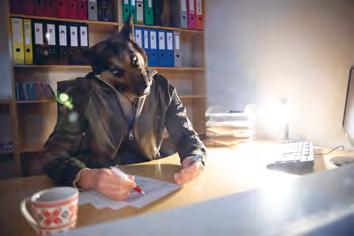
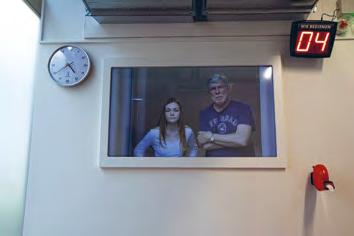
The installation of a refugee tent follows on Sengl’s work
short bio
»Escape!« where she reused escape rooms for an artistic purpose.
Deborah Sengl was born in Vienna in 1975. Since 1995 she has exhibited in Austria and abroad.
44 EuropEan Forum alpbach panorama
Rojin Sharafi: Performance
Rojin Sharafi’s music is a border-crossing mix of different genres. In Alpbach she will perform in a special setting.
Rojin Sharafi is a sound artist and composer of acoustic, electro-acoustic and electronic music based in Vienna.
Sharafi works in different modes, favouring improvisation as well as composing for films or working with ensembles. She is inspired by an interdisciplinary genre aesthetic, a concept opening new windows to a synesthetic world, where different aesthetic languages in different mediums merge, mingle and eventually create a new aesthetic.
Her music, too, is a border-crossing mix of different genres, borrowing elements from different eras and genres such as Noise, Folk, Ambient, Metal and contemporary music. Sharafi’s musical trademarks are fusion texture, narrative layers and formalistic approaches.
Sharafi’s debut album, »Urns Waiting To Be Fed« (2019), combined folklore and microtonal elements and traditional and electronic instruments. At EFA23, she will perform new and old pieces in a special setting.
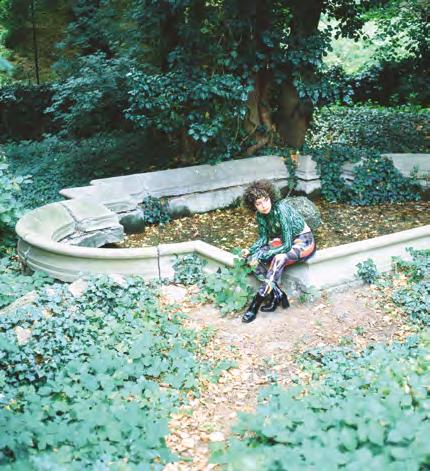
short bio
Rojin Sharafi was born in 1995 in Tehran. She is currently studying sound engineering and composition at the University of Music and Performing Arts, Vienna.
45 ArtS AND cUltUrE
ÖBB has been Austria‘s reliable partner for a hundred years and an indispensable source of technological advancements and solutions for the energy and mobility revolution. For more than a century, every single job with us has been a job with a purpose.
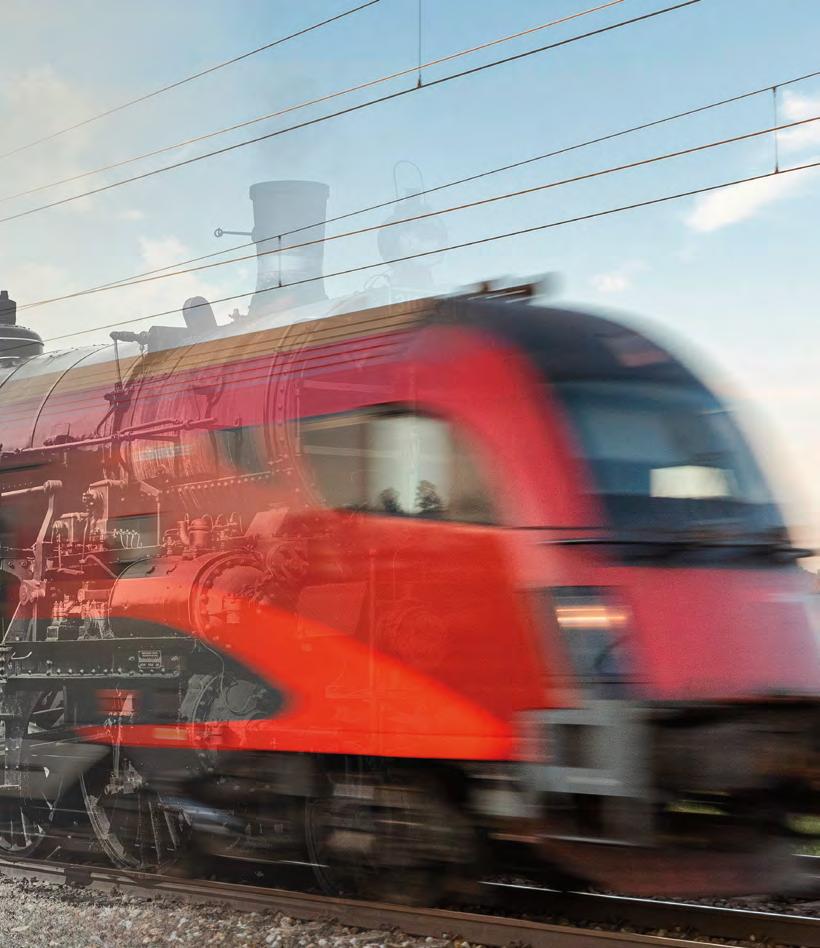 Foto: ÖBB/Knopp, ÖBB/Harald Eisenberger, Great
Foto: ÖBB/Knopp, ÖBB/Harald Eisenberger, Great
With strong Partners to a Bold Europe!
Main Partner
Main Social Partner
Premium Partners Partners
Supporters
Club Alpbach Steiermark
European Council on Foreign Relations (EcFr)




factor-D Diversity Consulting GmbH
Falling Walls Foundation
Finders & Company GmbH

German Marshall Fund of the United States (GmF)
Martin Grüll
Media Partners

Guntard Gutmann
Humanocare
Georg Kopetz
Peter Kunz
Lenzing Papier
Lung Yingtai Cultural Foundation
Miba
Multitudes Foundation
NEcE Labs
Ewald Nowotny
Oesterreichische Kontrollbank Aktiengesellschaft
(OeKb)
Franz Rauch
Partners as of 26 June 2023
#believe ineurope
Europe is facing new challenges and an increasingly uncertain environment. Central issues such as peace, democracy and human rights have taken on a new urgency. Together, we must face these challenges not fearfully, but resolutely. With a clear vision, strong commitment and bold ideas. It is up to us to jointly shape the promise the future holds for Europe.
As the European Forum Alpbach’s Main Partner, we are eager to discuss and develop ideas for a stronger and more resilient Europe.



 Andreas Treichl EFA President
Andreas Treichl EFA President










 Jadran Vecchiet, Journalist, Italy | Vice President Club Alpbach Senza Confini
Jadran Vecchiet, Journalist, Italy | Vice President Club Alpbach Senza Confini




















































































 studio
Soli Kiani (left) and Yana Barinova met in Kiani’s Vienna based studio. During the visit, they talked about their motivations for creating art and how their past influences their work.
efa 2023
studio
Soli Kiani (left) and Yana Barinova met in Kiani’s Vienna based studio. During the visit, they talked about their motivations for creating art and how their past influences their work.
efa 2023




 short bio
Elena Subach is a Ukrainian visual artist and photographer. Born in 1980 in Chervonohrad, Ukraine, she is currently based in Lviv, Ukraine.
short bio
Elena Subach is a Ukrainian visual artist and photographer. Born in 1980 in Chervonohrad, Ukraine, she is currently based in Lviv, Ukraine.






 Foto: ÖBB/Knopp, ÖBB/Harald Eisenberger, Great
Foto: ÖBB/Knopp, ÖBB/Harald Eisenberger, Great